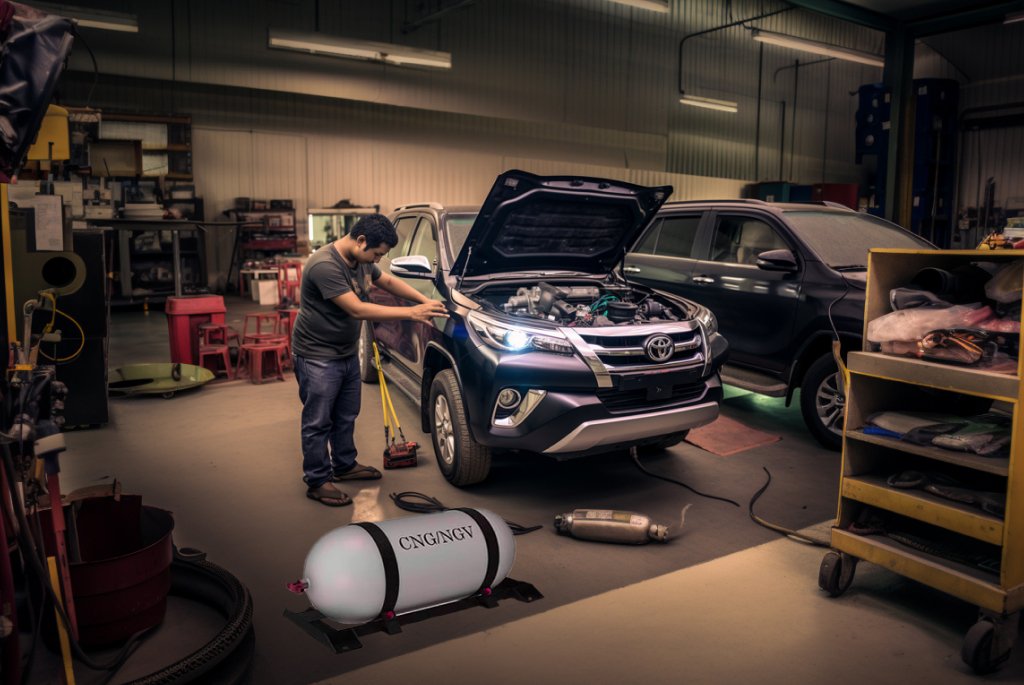
The rising cost of fuel, the growing environmental concerns, and the National Green Tribunal’s (NGT) directive issued for the NCR, which says diesel cars that are more than 10 years old and petrol cars that are more than 15 years old are banned in Delhi, have prompted many car owners to consider alternative fuel options. CNG, or compressed natural gas, has emerged as a popular choice due to its lower emissions and cost-effectiveness. While CNG-powered vehicles have become increasingly common, converting an existing diesel car to CNG may be an option for some.
Feasibility of Diesel to CNG Conversion
Converting a diesel car to CNG involves modifying the engine to operate on compressed natural gas rather than diesel fuel. This conversion process is more complex than converting a petrol car due to the fundamental differences in diesel and CNG combustion mechanisms. Diesel engines rely on compression ignition, while CNG engines require spark ignition. This necessitates the installation of a new ignition system, fuel injectors, and a CNG tank.
Factors to Consider Before Conversion
It’s crucial to weigh the various factors involved to determine if it’s the right choice for your particular situation.
- Cost: Converting a diesel car to CNG is a significant investment, with costs ranging from Rs 80,000 to Rs 1 lakh. This is considerably higher than converting a petrol car, which typically costs around Rs 40,000.
- Fuel Economy: CNG offers improved fuel economy compared to diesel, potentially leading to fuel cost savings. The exact amount of savings depends on driving habits, vehicle type, and CNG availability.
- Emissions: CNG is a cleaner fuel than diesel, resulting in reduced emissions of harmful pollutants and contributing to a cleaner environment.
- Vehicle Compatibility: Not all diesel vehicles are compatible with CNG conversion kits. It’s essential to check the compatibility of your specific car model before proceeding.
Conversion Process and Considerations
The conversion process typically involves the following steps:
- Authorization: Obtain authorization from an authorized CNG conversion center approved by the Central Pollution Control Board (CPCB).
- Kit Installation: The authorized center will install a CNG kit, including a CNG tank, fuel injectors, ignition system, and necessary piping.
- Engine Modifications: Modifications may be required to the engine’s intake and exhaust systems to accommodate CNG combustion.
- Emission Testing: The converted vehicle must undergo emission testing to ensure compliance with regulations.
- RTO Endorsement: The Regional Transport Office (RTO) must endorse the vehicle’s registration certificate to reflect the CNG conversion.
Government Endorsement and Incentives
The Indian government actively promotes the use of CNG as an alternative fuel to reduce pollution and reliance on imported petroleum. Initiatives like the Sustainable Urban Transport Mission (SUMT) aim to increase CNG adoption in public transportation.
Converting a diesel car to CNG can be a beneficial decision for those seeking to reduce fuel costs, minimize environmental impact, and align with the government’s initiatives towards cleaner transportation. However, it’s crucial to carefully evaluate the costs, fuel economy potential, vehicle compatibility, and conversion process before making a final decision.


